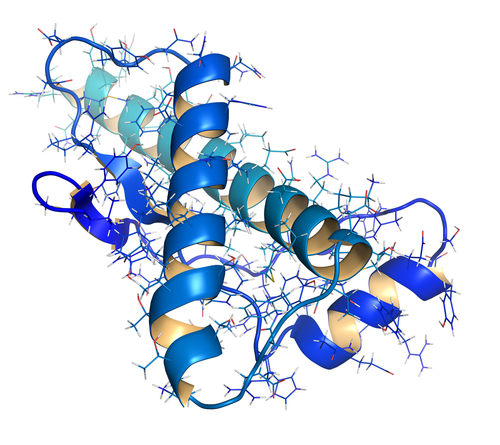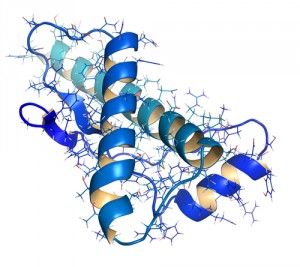New Solution For Repairing Misfolded Proteins in Alzheimer’s

A new study entitled “HSF-1–mediated cytoskeletal integrity determines thermotolerance and life span” published in Science unravels the role of heat shock transcription factor–1 (HSF-1) in aging and associated neurodegenerative diseases, such as Alzheimer’s.
 Heat shock proteins (HSP) are a group of proteins induced by heat shock and are central to responding to environmental changes that endanger cell survival. As a consequence of environmental stress, the heat-shock proteins play a key role in preventing other proteins from unraveling by being misfiled and degraded, and are thus termed “chaperones.” Accordingly, these proteins form a patrolling system, identifying misfiled proteins and helping them refold into the correct shape.
Heat shock proteins (HSP) are a group of proteins induced by heat shock and are central to responding to environmental changes that endanger cell survival. As a consequence of environmental stress, the heat-shock proteins play a key role in preventing other proteins from unraveling by being misfiled and degraded, and are thus termed “chaperones.” Accordingly, these proteins form a patrolling system, identifying misfiled proteins and helping them refold into the correct shape.
The system is believed to work by inducing an HSP that will then induce a signaling cascade, leading to the expression of more chaperones. This is achieved with HSF-1 (short for heat shock factor-1) that, once in the nucleus, induces transcription of other chaperone-genes.
Now, the study by the team led by Andrew Dillin, the Thomas and Stacey Siebel Distinguished Chair of Stem Cell Research in the Department of Molecular and Cell Biology and Howard Hughes Medical Institute investigator at the University of California, Berkeley shows HSF-1 has other roles beyond inducing chaperones. The authors engineered a transgenic nematode Caenorhabditis elegans for HSF-1 and observed that this strain increased stress resistance and longevity without changing chaperone induction. The authors identified, by transcriptomics and proteomics studies, a protein — troponin-like calcium-binding protein, PAT-10 – as a direct target of HSF-1 transcriptional regulation, and found to be essential for thermotolerance and longevity. They could pinpoint the effect of HSF-1 via PAT-10 as a regulator of actin cytoskeletal integrity and ultimately stress resistance and lifespan.
Accumulation of misfiled proteins was implicated in aging and neurodegenerative diseases, such as Alzheimer’s, Parkinson’s, and Huntington’s diseases. Therefore, HSF-1 artificial induction would reduce the unfolding burden and educe protein plaques found in neurodegenerative brains. While these boosters of HSF-1 could extend lifespan in mice, they also increase cancer incidence.
Now, the new role uncovered for HSF-1 inducing cell’s cytoskeleton stabilization identifies an unknown potential use for HSF-1. Accordingly, Dillin noted, “This finding provides a whole other outlook on protein-folding diseases; a new way to go after them. We are suggesting that, rather than making more of HSF-1 to prevent diseases like Huntington’s, we should be looking for ways to make the actin cytoskeleton better.”






